Posts in Category: cognitive science
the interdisciplinary study of cognition and behavior
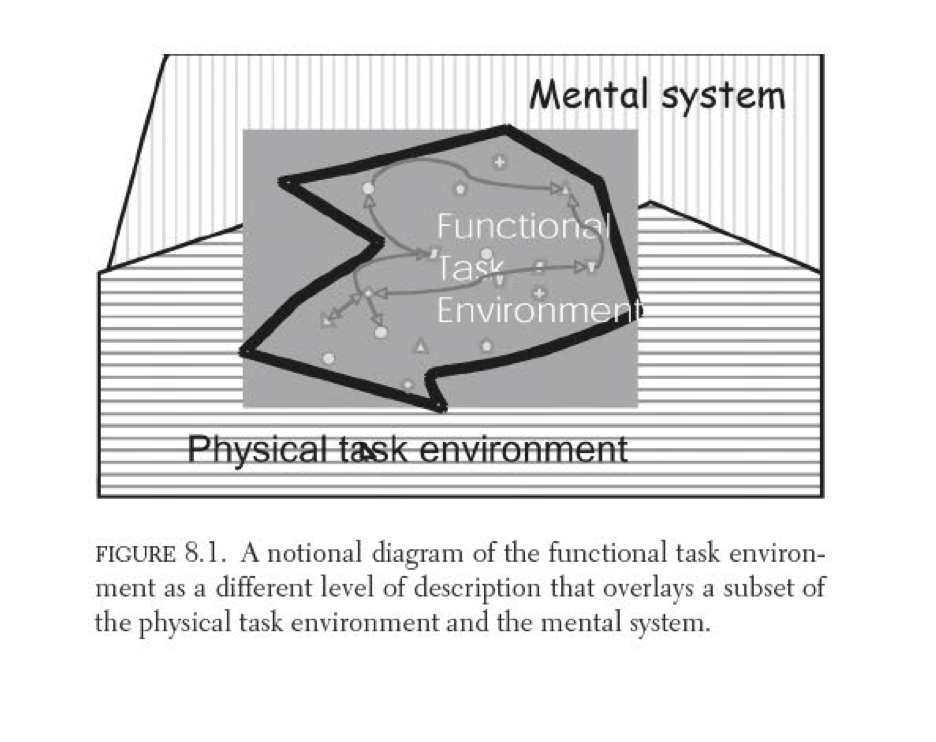
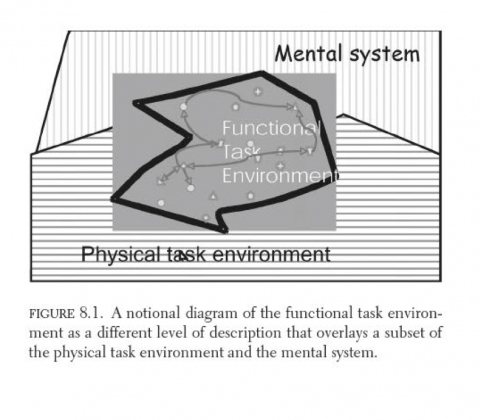
Chapter: The functional task environment
The apparent complexity of our behavior over time is largely a reflection
of the complexity of the environment in which we find ourselves.
(Simon, 1996, p. 53)
Wayne D. Gray, Hansjörg Neth, Michael J. Schoelles
The functional task environment
From the introduction: Although human thought may be possible in those floatation tanks that are used to encourage meditative states, in by far the majority of instances thought occurs in the context of some physical task environment. The physical environment can be as simple as a light and book. It can be as complex as the face of a mountain and the equipment of the climber. It may be as dynamic as the cockpit of an F-16 in supersonic flight and as reactive as a firefight in Iraq or as heated as an argument between lovers.
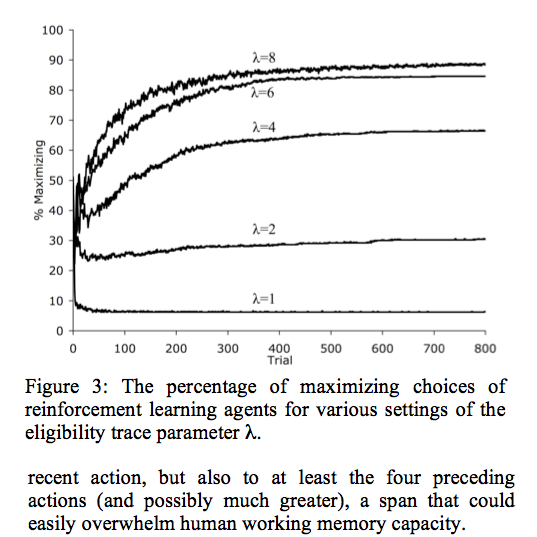
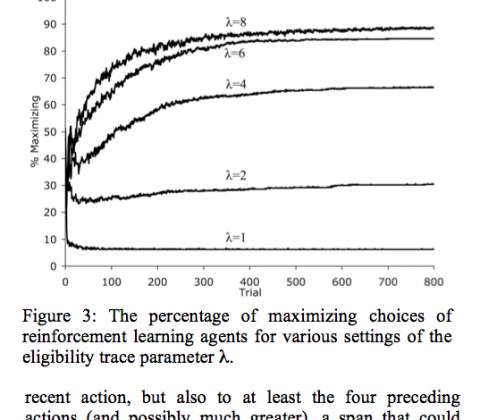
Paper: Melioration dominates maximization
| There is no reason to suppose that most human beings are engaged in maximizing anything unless it be unhappiness, and even this with incomplete success. |
| R.H. Coase (1980), The Firm, the Market, and the Law, p. 4 |
Hansjörg Neth, Chris R. Sims, Wayne D. Gray
Melioration dominates maximization: Stable suboptimal performance despite global feedback
Abstract: Situations that present individuals with a conflict between local and global gains often evoke a behavioral pattern known as melioration — a preference for immediate rewards over higher long-term gains. Using a variant of a binary forced- choice paradigm by Tunney & Shanks (2002), we explored the potential role of global feedback as a means to reduce this bias.
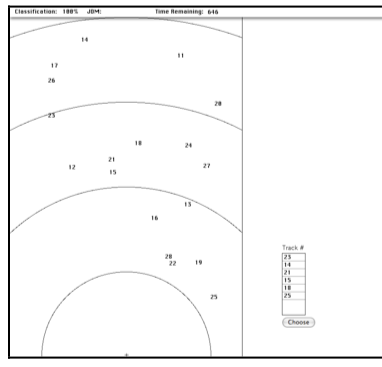

Paper: Integrated models of cognitive systems
Michael J. Schoelles, Hansjörg Neth, Christopher W. Myers, Wayne D. Gray
Steps towards integrated models of cognitive systems: A levels-of-analysis approach to comparing human performance to model predictions in a complex task environment
Abstract: Attempts to model complex task environments can serve as benchmarks that enable us to assess the state of cognitive theory and to identify productive topics for future research. Such models must be accompanied by a thorough examination of their fit to overall performance as well as their detailed fit to the microstructure of performance. We provide an example of this approach in our Argus Prime model of a complex simulated radar operator task that combines real-time demands on human cognitive, perceptual, and action with a dynamic decision-making task. The generally good fit of the model to overall performance is a mark of the power of contemporary cognitive theory and architectures of cognition. The multiple failures of the model to capture fine-grained details of performance mark the limits of contemporary theory and signal productive areas for future research.
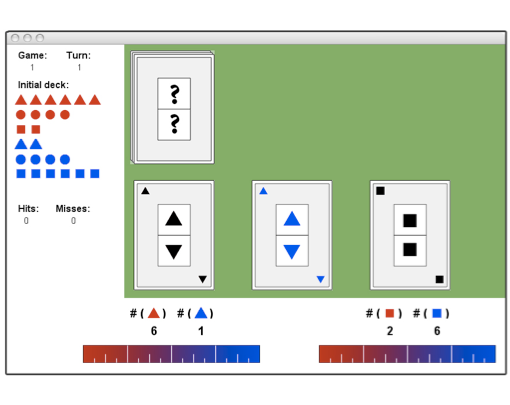
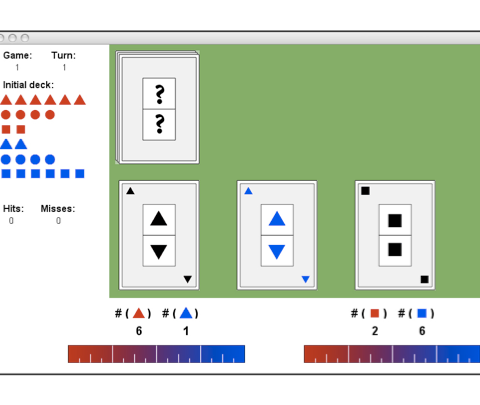
Paper: Dynamic memory updates in TRACS
| You can’t play 20 questions with nature and win. |
| Allen Newell (1973) |
Hansjörg Neth, Chris R. Sims, Vladislav D. Veksler, Wayne D. Gray
You can’t play straight TRACS and win: Memory updates in a dynamic task environment
Abstract: To investigate people’s ability to update memory in a dynamic task environment we use the experimental card game TRACS^tm (Burns, 2001). In many card games card counting is a component of optimal performance. However, for TRACS, Burns (2002a) reported that players exhibited a baseline bias: rather than basing their choices on the actual number of cards remaining in the deck, they chose cards based on the initial composition of the deck. Both a task analysis and computer simulation show that a perfectly executed memory update strategy has minimal value in the original game, suggesting that a baseline strategy is a rational adaptation to the demands of the original game. We then redesign the game to maximize the difference in performance between baseline and update strategies. An empirical study with the new game shows that players perform much better than could be achieved by a baseline strategy. Hence, we conclude that people will adopt a memory update strategy when the benefits outweigh the costs.